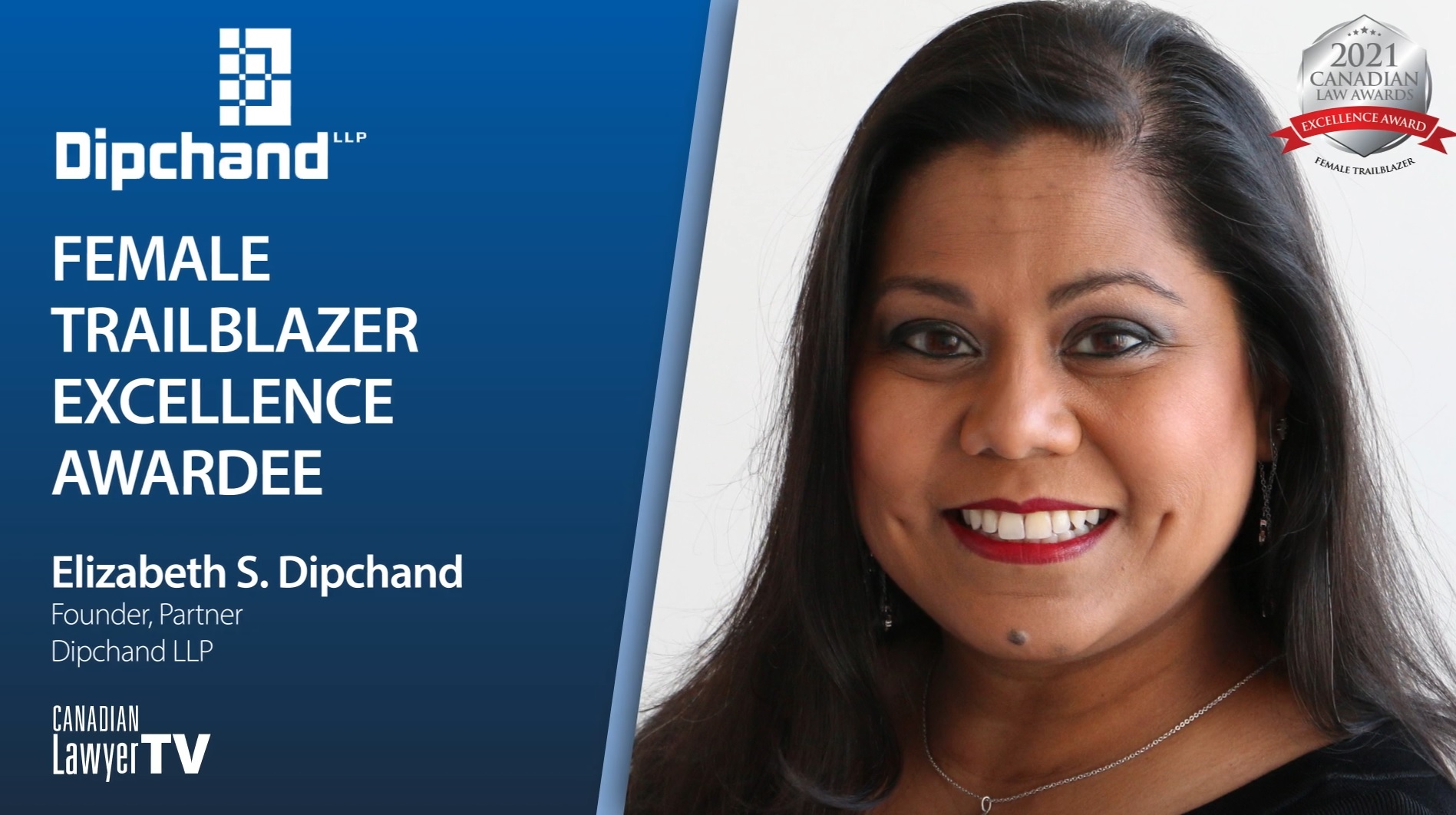Dipchand speaks about ways to better integrate women into the legal profession

Elizabeth Dipchand, founder and partner at Dipchand LLP, a Toronto-based boutique law firm, has been an advocate of change in her profession, believing that legal workplace culture should endeavour to better integrate women. Due to her achievements, the IP corporate law, franchise law, and litigation specialist has won the Female Trailblazer Excellence Award at the 2021 Canadian Law Awards.
“The question of how women are integrated into legal workplaces is a challenge that has gone on for some time, and it will continue to be a challenge as our perspectives change and grow. The word ‘accommodation’ is one that’s used quite often, and it’s one that I don’t agree with.” Dipchand recently told Canadian Lawyer. “It’s not a question of how we accommodate women. It’s a question of how we shift our framework and our thinking of how we all work.” To transform the workplace culture, Dipchand wants to redefine professionalism so that women can work and live “in a way that is true to our values … to who we are as humans, not just lawyers.”
In her career, Dipchand views challenges as opportunities to work in accordance with her identity and values. “[In] probably about my seventh or eighth year of practice, I was thinking, ‘Wait a second, I’m not a six-foot-tall white man’. I’ve been trying for many years to be something and be someone who I’m simply not and will never be. And that’s an important aspect of understanding how my identity factors into how I practice law. It’s the thing that underpins how I connect with people, with clients, with colleagues.”
Her definition of success relates to teamwork – “building a team, building people, building a community of like-minded people with shared values” – a crucial element of the culture that differentiates Dipchand’s firm from its competitors. By delivering services underpinned by values, such as excellence and ingenuity in problem solving, her firm has developed a loyal and deeply connected client base.
“There’s nothing I like more than a great problem to solve. It’s so much fun and the integrity that goes along with our practice is key as well … Fun is also critical, and I don’t think there’s a lot of places that will prioritize fun and happiness. But here’s the secret: If you do what you love doing and you’re happy in being able to serve clients, success will come,” Dipchand says. Her team’s idea of service involves giving back to the community by volunteering and supporting initiatives that are close to people’s hearts.
Thanks to her educational background in genetics and biochemistry, as well as her masters’ studies in regulatory and patent laws, she is inspired to continue learning. Appreciating the connection between life sciences and intellectual property litigation, she says: “It is fascinating to see what our clients are doing. It’s fascinating to be able to help navigate through different new technologies … As the law develops, there’s a huge amount of continued development in interconnected spaces. It’s not just Canadian perspectives, it’s global perspectives.”










